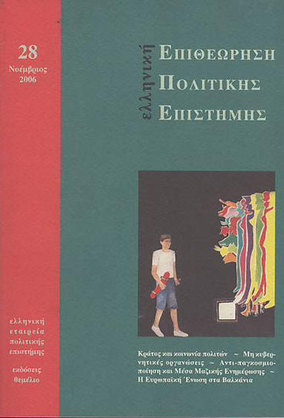Richard Falk : η ουμανιστική-κανονιστική παράδοση στην υπηρεσία της διεθνούς τάξης
Part of : Ελληνική Επιθεώρηση Πολιτικής Επιστήμης ; No.3, 1994, pages 71-102
Issue:
Pages:
71-102
Author:
Abstract:
Despite the dominance of the positivist-realist paradigm as regards the study of international relations, normative questions and approaches are and should still be pursued.R. Falk’s work is a good example of a renewed interest in normative international relations. He rejects political realism both on methodological and ethical grounds and espouses instead a value-oriented international theory, in order to help bring about a just world order. To be sure, Falk has not developed a coherent and systematic theory. His early writings were distinguished by their call for international legal reforms. He subsequently abandoned these ideas and focused, instead, on transnational social movements and, later on, in charismatic spiritual leaders. To make sense of his «political philosophy», we endeavour to unravel the basic tenets of a particular brand of normative tradition to which we feel he belongs.Viewing Falk in this light helps reinterpret his teachings and make sense of his contradictions. Realist and liberal critics may have been right in pointing out his utopianism. Yet utopian thinkers from Plato to Strauss have often offered an ethical view of politics, something which is always of high value. The revival of this kind of thought in the realm of international politics is, therefore, Falk’s real contribution.
Subject (LC):
Keywords:
διεθνείς σχέσεις




